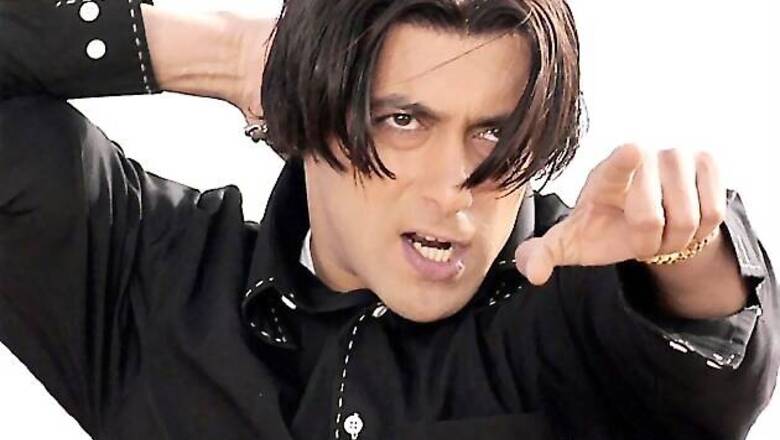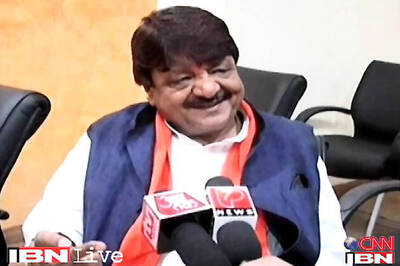
views
New Delhi: The trends are changing and they are changing fast. Earlier, the film used to become a hit and then the audience would start talking about it, now the potential audience are enticed to talk about the film and then it becomes a hit.
For an average Bollywood film, the publicity budget is almost equal to its production cost. All sorts of stories are planted in the media to fetch attention. As a result, some average films are hitting the jackpot, and once the filmmaker has a 'solid' cash register to display, the audience are forced to look at the content of the same film in a new way.
Also, it's about the public memory and popular behaviour to some extent. The reason would always be the same, 'Are those people mad who are making a particular film a Rs 100 crore venture.'
So, what's the actual mathematics behind a film's success? Can a well planned publicity drive make a film hit? Film critic Pratim D Gupta says, "Certainly! See you would think that big stars don't need publicity because they are already famous and their films should naturally take huge openings. But today the bigger the star, the bigger is the publicity drive around a movie. That just shows how important it is to nail the film into people's consciousness."
Does this mean the content has a very limited role in it? Pratim says, "Content is only king for a pauper film. The smaller the film, the content becomes more and more crucial. For bigger films, you can go about with just about anything and a few identifiable elements like roaring dialogues, item numbers, crazy action. The review also becomes more critical for smaller films. Films like 'Chennai Express', 'Krrish 3' and 'Dhoom 3' got such negative reviews and yet laughed all the way to the bank. They are largely review-proof."
What's the other side of the story? Shailesh Giri, a film publicist opines, "The time has changed. Today publicity matters as much as the star-cast of a film. There have been many small budget films which became successful due to the hype created around them, for example take 'Student of the Year', publicity helped it a lot. However, it's a double edged sword which sometimes backfires as well."
"I remember one story before the release of 'Tere Naam'. We planned stories about Salman and Aishwarya Rai's love story, interestingly that story worked better than our expectations," adds Giri. It is a popular saying about Giri in the journalism circuit that there is hardly a journalist (entertainment or otherwise) whose mailbox doesn't have at least one mail from him.
However, Shiladitya Bora, who heads PVR's initiative Director's Rare, has a different opinion about it, "No amount of PR can save a mediocre small independent film. For a small indie film the content has to be really good to make it work because such film mostly thrives on word of mouth."
That means the case might be different for big budget films, "In case of big tentpole films even when the content is average, PR can sometimes make it click because of the sheer size of release and crores worth marketing machinery."
Is this like challenging the viewer's conscience? Shailesh Giri cites an incident, "See, we review things related to films beforehand and then decide on stories which can be picked up by the media. Sneha Ullal's story spontaneously came to someone's mind and later it became big. Normally, the star-cast doesn't decide stories to be sent to media. The director organises ingredients in his own way and the marketing department does it their way. We add 'masala', but we don't want a film to be affected. Sometimes we use bad publicity but then it depends on the film's content. It also depends on the target group."
It's hard to deny the value of publicity. Shiladitya also agrees on it, "A publicist is of pivotal importance and can make or break a film. It's very unlikely that a film can be successful without effective PR."
Pratim, who himself is a filmmaker, throws light on the role of the director in such a scenario, "PRs are largely bound by what the stars and directors want. There are directors like Vishal Bhardwaj and Sanjay Leela Bhansali who refuse to give interviews to the media. What can a PR do in such cases? But I also believe that the filmmakers should have a big say in their films' marketing plans because no one knows their films better than them."
It seems that publicity is equally required for both small and big budget films, may be more for small films. The audience is injected with the idea that it's 'cool' to watch a particular film because everybody is watching it. As expected, the spectator starts to believe that it's ok to shed a few hundred on a film in order to maintain peace with the 'mainstream' surrounding. If this is not the case then why the same audience is not willing to watch an independent film, which has got good reviews, in the same amount of money?
####




















Comments
0 comment